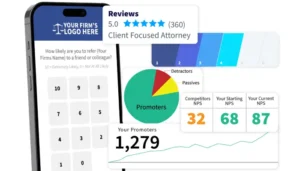Streamline Your Workflow With Case Status Software

Case status software is instrumental in streamlining the workflow within a legal practice by centralizing case management tasks into a single, user-friendly platform. It enables legal professionals to automate routine tasks such as scheduling, document management, and case tracking, which significantly reduces the time spent on administrative duties. This automation helps minimize manual errors and ensures that all case-related activities are conducted efficiently and accurately. Additionally, the software’s ability to integrate with other tools and databases allows for seamless data sharing and collaboration among team members. By consolidating various aspects of case management into one system, case status software not only enhances productivity but also provides a comprehensive overview of each case’s status, facilitating more informed decision-making and better overall case management.
Enhance Client Communication Using Case Status Software
Effective client communication is essential in legal practice, and case status software plays a pivotal role in enhancing this aspect of case management. The software often includes features that allow clients to access real-time updates on their case status, view important documents, and receive notifications about critical milestones or changes. This transparency helps build trust and keeps clients informed about their case’s progress without the need for constant phone calls or emails. Furthermore, case status software can facilitate secure, direct communication between clients and their legal representatives, ensuring that sensitive information is exchanged safely and efficiently. By improving communication channels, case status software not only enhances client satisfaction but also strengthens the overall client-lawyer relationship.

Top Features To Look For In Case Status Software
When selecting case status software, it is crucial to consider a range of features that will best meet the needs of your legal practice. Key features to look for include comprehensive case management capabilities, which allow for tracking of case progress, deadlines, and appointments. Integration with other tools, such as billing software and document management systems, can greatly enhance efficiency by reducing the need for manual data entry and ensuring that all relevant information is easily accessible. User-friendly interfaces and customizable dashboards are also important, as they enable legal professionals to tailor the software to their specific workflows and preferences. Additionally, robust security measures are essential to protect sensitive client data. By evaluating these features, you can choose case status software that aligns with your practice’s requirements and maximizes operational efficiency.
Benefits Of Integrating Case Status Software In Your Practice
Integrating case status software into your legal practice offers numerous benefits that can significantly enhance operational efficiency and client satisfaction. One major advantage is the improvement in organizational capabilities, as the software helps manage multiple cases simultaneously, ensuring that deadlines and appointments are met without oversight. It also facilitates better resource management by providing insights into workload distribution and case status, allowing for more strategic allocation of time and personnel. Additionally, the software’s automation features reduce the likelihood of human error and administrative burdens, freeing up valuable time for legal professionals to focus on more critical tasks. Overall, the integration of case status software leads to a more streamlined, organized, and efficient practice, ultimately contributing to better case outcomes and improved client experiences.
How Case Status Software Can Save Time And Reduce Errors?
Case status software is designed to save time and reduce errors through automation and centralized case management. By automating repetitive tasks such as document generation, scheduling, and deadline tracking, the software minimizes the time spent on manual processes and reduces the risk of errors associated with manual data entry. The software’s ability to provide real-time updates and alerts helps legal professionals stay on top of important tasks and deadlines, preventing last-minute rushes and missed appointments. Additionally, centralized data storage ensures that all case-related information is easily accessible and up-to-date, further reducing the likelihood of mistakes caused by outdated or incomplete information. By streamlining workflows and enhancing accuracy, case status software contributes to a more efficient and error-free legal practice.
Choosing The Right Case Status Software For Your Needs
Selecting the right case status software involves evaluating various factors to ensure that the solution aligns with the specific needs of your legal practice. Begin by assessing the features and functionalities that are most important for your practice, such as case management capabilities, integration with existing tools, and user interface preferences. Consider the software’s scalability to accommodate future growth and changes in your practice. Additionally, evaluating customer support and training options can be crucial for ensuring a smooth implementation process. It’s also beneficial to read reviews and seek recommendations from other legal professionals to gauge the software’s performance and reliability. By carefully considering these factors, you can choose case status software that enhances your practice’s efficiency and effectiveness.
Case Status Software: A Guide To Enhancing Legal Case Management
Case status software serves as a comprehensive solution for enhancing legal case management by offering a range of tools and features designed to streamline workflows and improve organization. This guide explores the various aspects of case status software, including its ability to automate routine tasks, facilitate better client communication, and provide real-time updates on case progress. The software’s integration capabilities with other systems, such as billing and document management, further enhance its effectiveness in managing complex legal cases. By implementing case status software, legal practices can achieve greater efficiency, accuracy, and client satisfaction, ultimately leading to more successful case outcomes and a more organized practice.
Case Status Software: Essential Tool For Modern Legal Practices
In the modern legal landscape, case status software has become an essential tool for maintaining efficiency and effectiveness in legal practice. As legal professionals face increasing demands and complexities in case management, the software provides a streamlined approach to handling multiple cases, tracking progress, and communicating with clients. Its advanced features, such as automation, real-time updates, and integration with other tools, address the challenges of managing a busy legal practice. By adopting case status software, legal practitioners can enhance their organizational capabilities, reduce errors, and improve overall productivity. In essence, case status software represents a critical investment for modern legal practices seeking to stay competitive and provide exceptional client service.
Conclusion
Case status software is a vital asset for legal practices aiming to optimize their case management processes and enhance client interactions. Its ability to streamline workflows, automate routine tasks, and improve communication channels contributes to a more organized and efficient practice. By evaluating and selecting the right case status software, legal professionals can reap the benefits of reduced administrative burdens, minimized errors, and improved client satisfaction. As the legal field continues to evolve, embracing such technology becomes essential for staying ahead of the curve and delivering high-quality service. In conclusion, case status software not only transforms the way legal cases are managed but also represents a significant advancement in the quest for operational excellence and client-focused practice.






